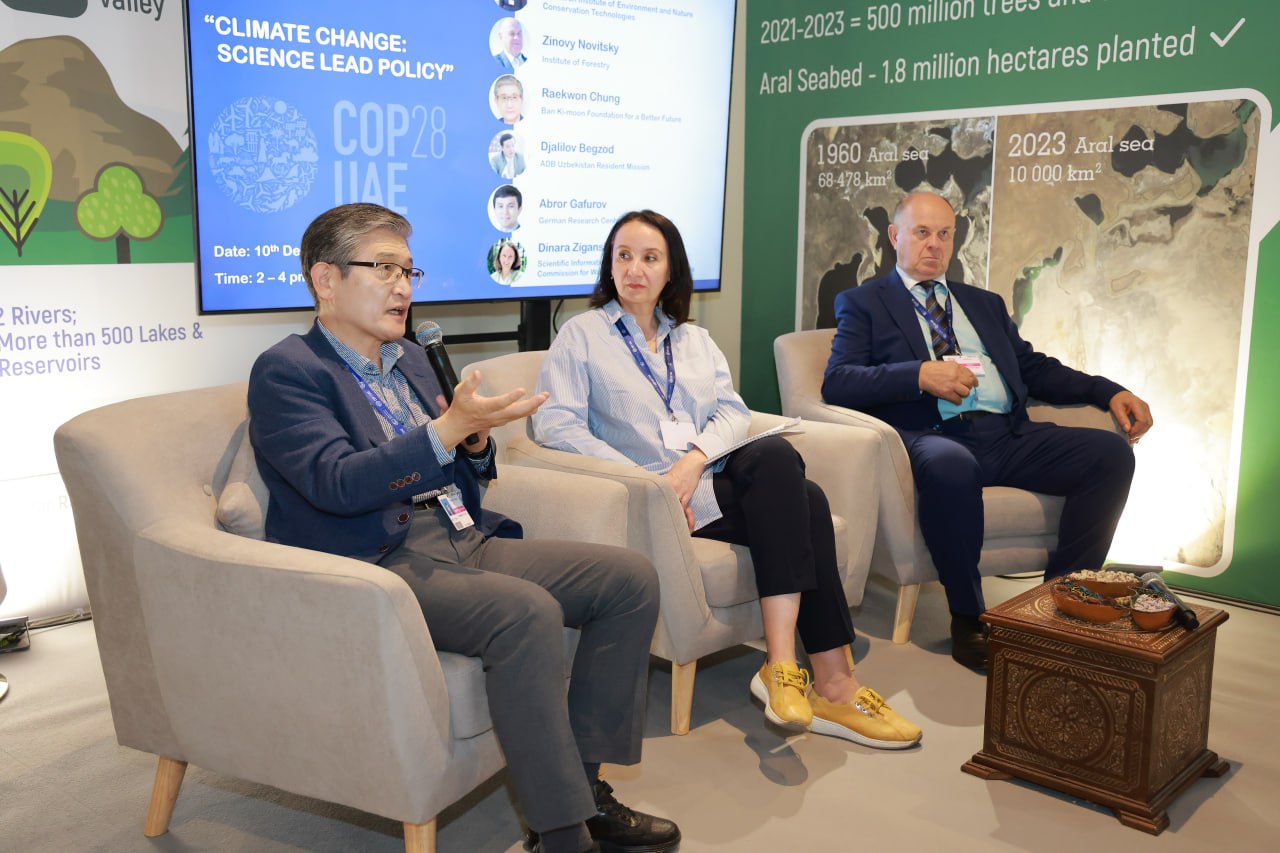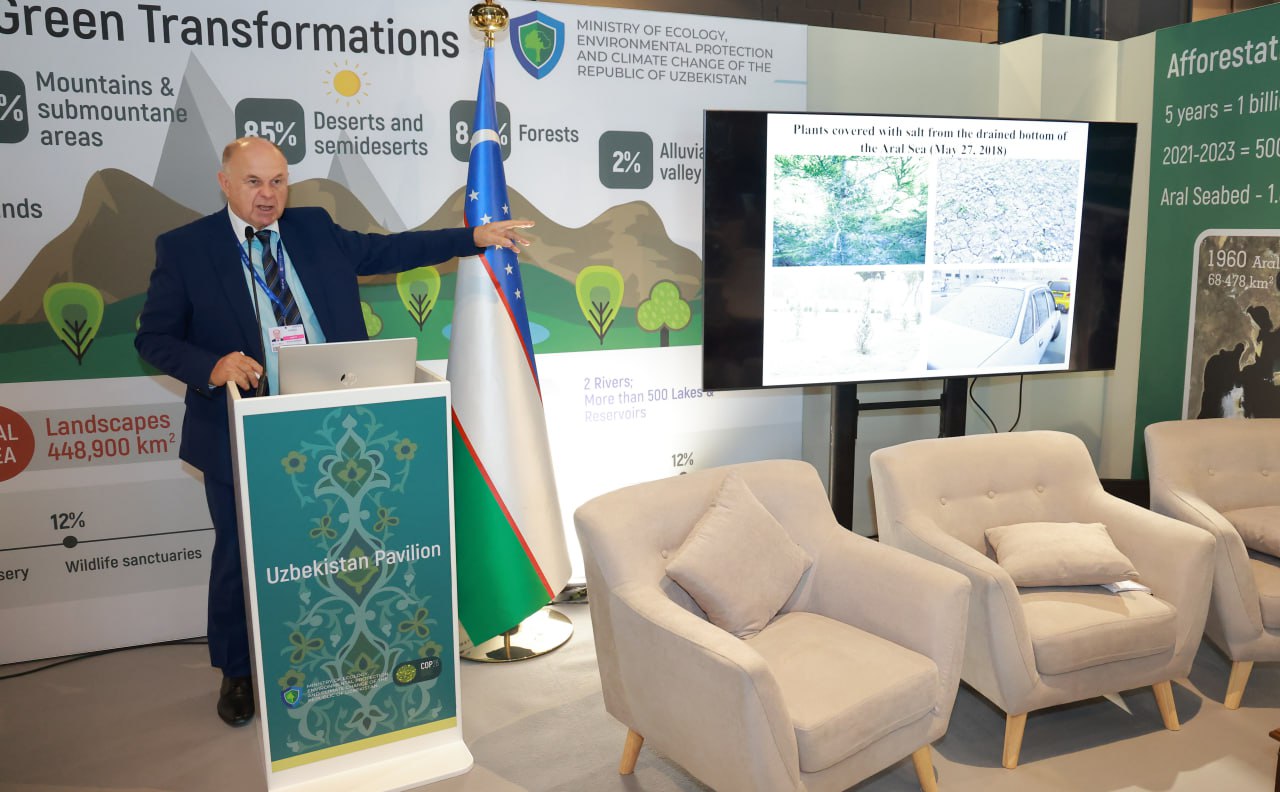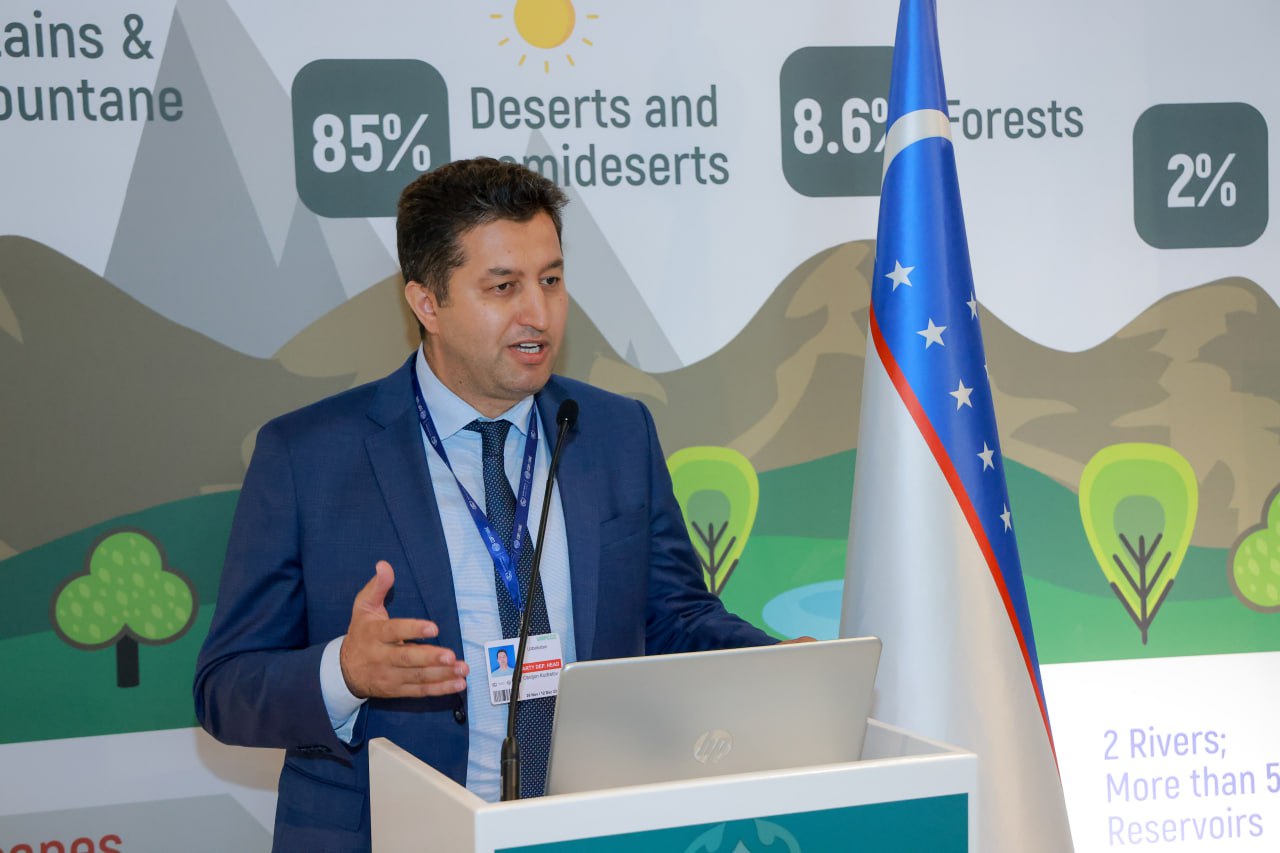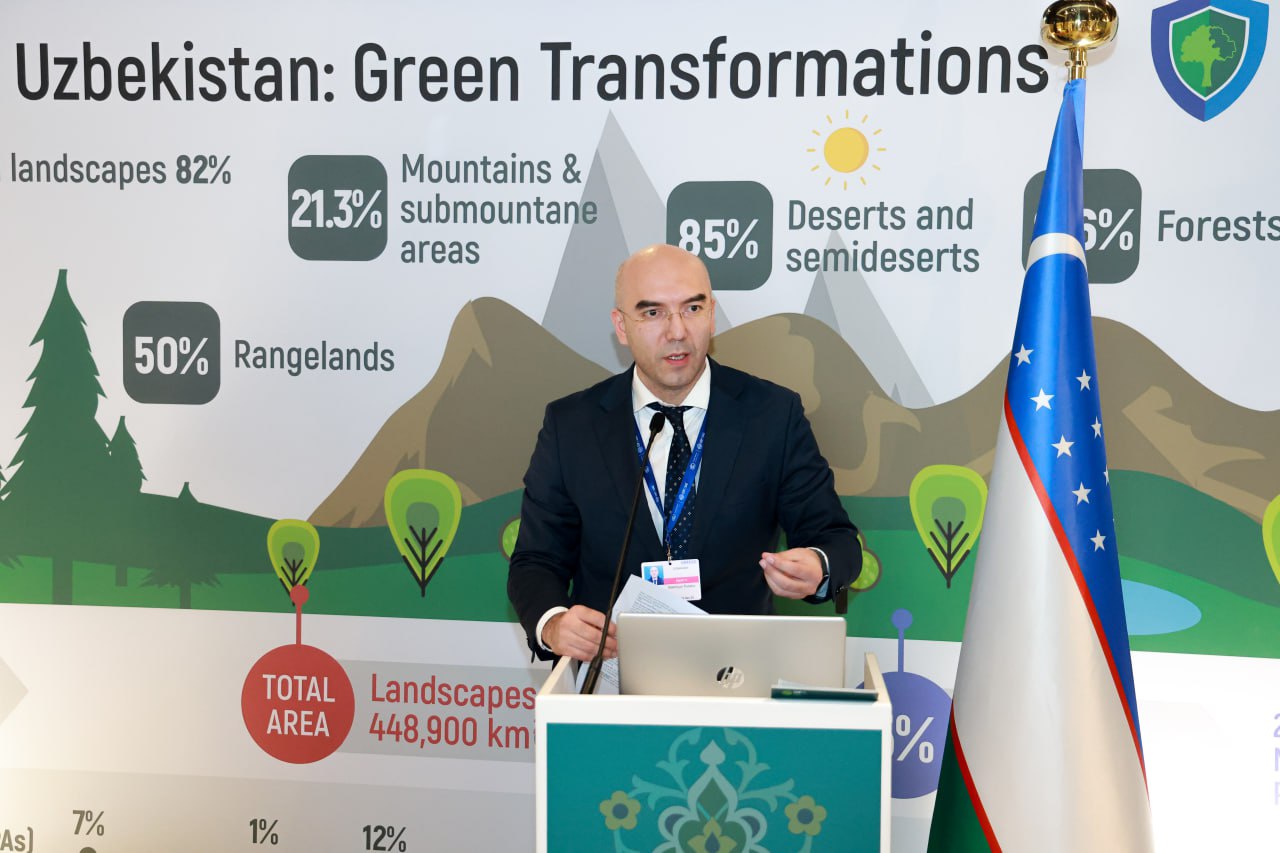
As part of the 28th United Nations Climate Change Conference (COP28) at the Uzbekistan Pavilion in Dubai, UAE, a session titled "Climate Change: Science and Policy" was held. It brought together ministers from various countries, leaders in the field, politicians, scientists, and other stakeholders to discuss the consequences of climate change and strategies and measures to combat it.

The event was attended by Deputy Minister of Ecology, Environmental Protection, and Climate Change of the Republic of Uzbekistan, Obidjon Kudratov, Nobel laureate Rae Kwon Chung, Director of the Research Institute of Nature Conservation and Nature Protection Technologies, Bakhtiyor Pulatov, Professor at the Research Institute of Forestry under the Ministry of Ecology, Zinoviy Navitskiy, Director of the Scientific-Information Center of the Interstate Coordination Water Commission (IFAS), Dinara Ziganshina, representative of the German Research Center GFZ, Dr. Abror Gafurov, Researcher at the Center for Global Change Impact Studies under the Ministry of Climate Change of Pakistan, Dr. Shakat Ali, and others.

The aim of the event was to highlight the role of climate change science in policy-making. Climate change has been a recurring topic in almost all sectors for many years, and it is impossible to discuss climate change without referring to scientific findings. This is particularly relevant to policy-making, as actions to combat climate change at the local level will be crucial for ensuring a just green transition for the population of Uzbekistan.
It was noted that exploring the interface between science and policy allows for a deeper understanding of how to address communication and collaboration issues that arise from the interaction of science and policy. People's attitude towards their anthropogenic nature, as well as the necessity and extent to which humans should mitigate the consequences of climate change, can be influenced by a range of factors. Furthermore, since the consequences of such global climate change are not limited by borders and have become increasingly severe in recent decades, shedding more light on the current state of interaction between scientific discoveries and climate policy is important.
The event featured lectures on topics such as "Measures for Climate Change Adaptation on the Aral Sea's Dried-Up Bed through Forest Plantation," "How Can Knowledge Exchange and Capacity Building be Used to Disseminate Best Practices to a Wider Audience?" "What Gaps in Further Research Need to be Addressed to Activate Efforts to Combat Climate Change?" and others.

Additionally, questions were discussed, such as "Is science 'successful' in the sense that climate predictions adequately reflect the development of future climate reality?" and "Is policy 'successful' in the sense that effective actions to control greenhouse gas concentrations in the atmosphere and subsequent warming are being taken worldwide?" and so on.











